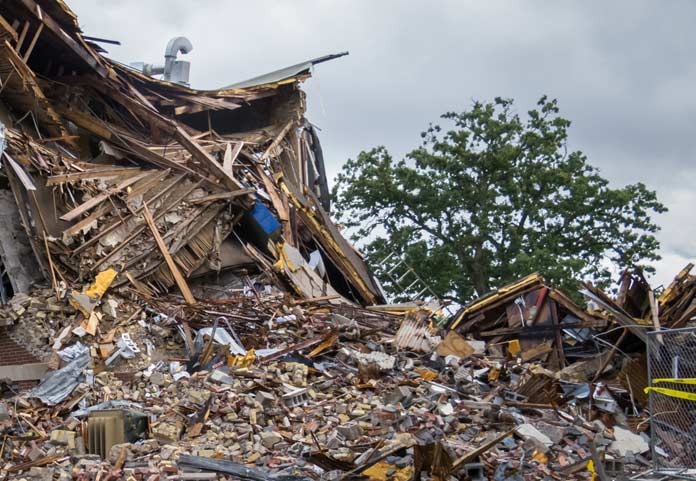Yes. You can sue the company that filled the propane tank before your house exploded if there is evidence that the company made a mistake and if that mistake caused, at least in part, the explosion or conditions that contributed to the severity of the injuries. Also, there may be legal responsibility if the company failed to warn the homeowner of the dangers of propane gas and the need for a detector.
The company that fills a tank has several responsibilities, including the following:
- Fill the tank to the appropriate level, usually about 80% full, which allows for expansion of liquid and prevents odorant fading (explained below);
- Inspect the tank, including the valves, regulator, and meter, for any safety issues;
- Check for a leak if notified of a possible leak or even just an odd odor (can be a punitive damages case if this is not done before an explosion);
- Depending on the servicing, inspect the entire system (including gas lines) and appliances to make sure there are no leaks and that everything related to the system is in working order;
- Maintain and repair the system as needed;
- Conduct mandatory testing;
- When propane gas has been sitting in the tank for a long period of time, take measures to ensure that there is enough odorant in the fuel to warn of leaks by smell.

Get Legal Help from Lawyers with a Record of Success
Explosion cases involve many, many issues of law and complex, science-based evidence. The attorney you hire does matter. Contact the experienced lawyers on our explosion and fire legal team. Submit our free consultation form and ask to talk to one of them about your case. It won’t cost you anything, and we do not pressure people to hire our law firm.
Did the Propane Company That Filled the Tank Own It?
In many cases, the company that fills the tank owns the tank, also referred to as the “cylinder” in regulations and training manuals. If the homeowner leased the tank, the company is responsible for maintenance and repairs, and for replacing the tank when needed. If there is an out-of-date part like a regulator, the company is required to remove it and replace it with a new part.
Can We also Sue an Appliance Manufacturer or Heating and Air Conditioning Company?
In some cases, several companies can be sued. If, for example, a defective gas valve in an appliance leaked gas, the makers of that appliance and the valve (often not the appliance maker) can be sued for injuries (burns, fractures, traumatic brain injury, kidney failure, respiratory failure) and wrongful death. In the same way, a heating and air conditioning company that improperly installs or maintains an appliance can be legally responsible. There are many other scenarios involving these and other kinds of companies. The key is hiring an attorney with experience and the resources to pursue every lead and hire the best forensic experts available. You can use our free consultation to contact our law firm and ask to talk with an explosion lawyer for free.
What if the Cause of the Leak is not Found?
You probably have a case even if the cause of the leak is not found. We just settled a case for $10 million where the source of the leak was not determined. In that case, the issue was odorant fade, which is the next topic.
What is Odorant Fading and is the Company at Fault?
Propane is a liquid petroleum gas (LP-gas). It is stored as a liquid because it is 270 times more compact as a liquid than as a gas. However, it is used as a gas in the home. Liquid petroleum becomes a gas again when a valve is opened to release it from the pressurized tank. This gas is heavy, and if it leaks, it can build up under the house or in the basement. The gas is also highly flammable. Any spark can cause a blast.
Because propane gas is odorless, a chemical compound called ethyl mercaptan is added to it to make it smell very bad, like rotten eggs. This smell alerts people to leaks.
Ethyl mercaptan can react with the lining of the tank, resulting in the fading of the rotten-egg odor. When this happens, a home could be filled with LP gas and no one would know. This is what happens in many of these explosions. In many cases, the company that filled the tank is responsible for the odorant fading, and that means they are legally responsible for personal injury and wrongful death.
For more information, see “Why Didn’t We Smell Gas before the House Exploded?“

Pritzker Hageman Attorneys Win $10 Million for Client
The Pritzker Hageman burn injury legal team, led by Eric Hageman, recently won $10 million for a man who was severely burned. Our client, a vibrant, handsome man in his 40s, lost fingers and has scarring on about 60% of his body. He beat the odds and lived, and his strength and the love of his wife are helping him recover. Contact Eric at 1-888-377-8900 about a propane explosion lawsuit. We are not paid unless we win.